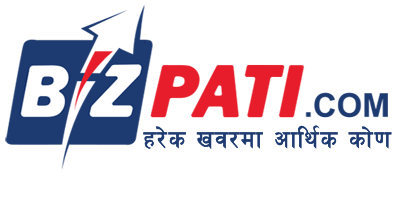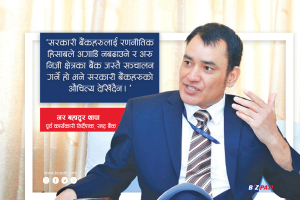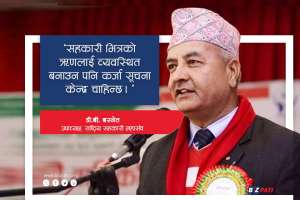
Bishal Sapkota
Coronavirus pandemic is an ongoing pandemic of novel coronavirus disease 2019 (nCOVID-19) caused by severe acute respiratory syndrome coronavirus 2 (SARS-CoV-2). The virus is named “novel” indicating a new type of virus and COVID-19 is zoonotic disease. A zoonotic disease is one which begins from animal and it transferred to people. The outbreak was identified in Wuhan, China, in December 2019. World Health Organization declared the outbreak to be a Public Health Emergency of International Concern on 30 January 2020, and recognized it as a pandemic on 11 March 2020. As of 19 April 2020, more than 2.49 million cases of COVID-19 have been reported in over 185 countries and territories, resulting in more than 171,000 deaths and by the time more than 656,000 people have recovered.
The Government of Nepal has confirmed thirty one COVID-19 positive cases as of the date. Out of thirty one, three persons have already fought against the disease and successfully discharged from hospital after winning the battle of life against the COVID-19. Evidently, COVID-19 is an easily communicable disease which has spread in such large number over a short span of time. Amid this, government of Nepal has announced full luck down since 11th day of Chaitra 2076 (25th March 2020) in order to prevent the spreads of virus to one person to another. All National & International flights and other means of transportation except for the transportation basic necessities has been also halted since then. To add, looking into the current situation, it seems that nobody (including experts and scientists) are able to say when and how the nation will overcome this pandemic even after almost a month of full lockdown.
Currently, most of the countries in the world have declared lockdowns and market close which is assumed to have been leading large downsize in the world wide economy. IMF and World Bank has already forcasted negative economic growth in most of the countries in 2020. Pandemic has just started hitting Nepal, the worst is yet to come. In our country millions of migrant workers are spilling out of cities they may carryout the contagion to their villages. Millions of workers who engaged in foreign employment abroad are also suffering from the pandemic and it is directly affecting to remittance. Further, thousands of workers within the country as well as outside the country have become jobless and are at risk of starving. There is also challenge that people who are within the country may not survive long since most of them in our demographic mixture are below the poverty line who may not have savings to deal with the daily expenses.
Experts have forcasted the economic growth of 4.7% as against the budgeted target of 8.5% in 2020, which shows substantial downfall in economic growth of the country. In addition, the government has budgeted a revenue Rs. 981 Billion from internal sources but till Falgun 2076, government is only able to collect Rs. 500 Billion, the rest seems more doubtful to be recovered which may also lead to fiscal deficit.
Four main sector namely demand, supply, capital and employments of the nations economy has been majorly disrupted.
Combination of reduction in income
and fear of contagion leads to lower in private expenditure though this may be
offset by increase in government expenditure to some extent. However, net
effect is expected to be on negative side.
Market
has already felt the shortage of many products including basic essentials. Full
lock down for a month has lead to no production in manufacturing industry. Both
of its neighboring countries (India and China) are following the lock down
strategy which in consequent caused difficulties in exporting goods from these
nations into Nepal. Nepal is not even partially digitized in service sector
which may fuel increase in more adverse situation in service sectors like
hospitals and home supplies.
Nepal's
one and only platform for financial market
"NEPSE" is also closed though worlds major capital markets are
in operation despite the fact that the respective country is under full
lockdown. If we look into the
composition of the capital market of the nation, bank and financial
institutions forms the major chunks of it. Banks and FIs are facing the
situations of non-repayments of debts and interests and analysts are in the opinion
that the capital market of Napal is going to face prime crisis as a result.
Further investment in equity and debt securities in unorganized sector may also
fall due to reduction in income and savings.
Millions of the people who were on
foreign employment and who works within Nepal
in unorganized sectors have already lost their jobs. The relationship of the
loosing of job is proportionately linked with the period of pandemic. Individuals
who are involved in small caps may also need to shut down their activities due
to decline in demands of product in the market as the purchasing power
decreases to rock bottom.
Larger economy in the world have
already declared the relief package to overcome the challenges but our
government is yet to bring it. Following could be the possible scheme that Government
of Nepal should carry out to overcome the pandemic:
Decrease in interest rates &
ban on distribution of dividend.
Government may immediately reduce
the rate of interest on deposits ( the
quantum of reduction personal deposit should be less than the reduction in rate
of institutional deposits). Its may be reduced by at least by 20%-30%. Further government should ban the
distribution of dividend for FY 2076.
Financing in "cost of fund"
by all the banking and financial institutions (B&FIs) capitalization of interest & rescheduling of loan
Government should, through NRB
direct all the bank & financial institutions to charge the interest not
exceeding their cost of fund for the pandemic period. It could be earlier than
the lockdown period based on the nature of industry. Interest for the pandemic
period should be capitalized with the loan amount and rescheduling shall be done
after giving certain breathing time. It will help to industries those are
suffered to manage the cash flow and motivate to focus on business.
Doing all this is again a challenge
for the B&FIs who all are the pillars of our economy but this industry
should understand that they are just facing short term problem cause they will
get the same volume of exposure in their business immediately after pandemic
though there is slightly increment in risk of default in repayment of loan.
However, business risk of all other industry may be exposed to higher level
than they have exposed earlier. Market of the other industries have got
significantly downsized due to varioius factors associated with the pandemic.
NRB shall also announce some directives with respect to the classification of
rescheduled loans due to this pandemic.
Further, history of banking
industry in Nepal shows that the B&FIs are performing well, earning
continuous profit and being found stable. So, in case of emergency of national
economy they can bear it the most.
Payroll loan to the organizations
Government
can formulate the strategy and direct all the bank and financial institutions to
grant the payroll loan to their own client without asking for any collateral
security. Which could be by way of giving guarantee by government. Amount and
tenure of loan shall be defined by the government in package based upon the nature of industry. Rate of
interest should be not more than the cost of fund as stated above.
Promoting tourism industry by providing tax benefits and by doing compulsion for domestic tourism
Tourism Industry is Nepal’s one of the major revenue generating industry. Covid-19 pandemic has effected this industry at the most (specially when the government has announced the year 2020 as Visit Nepal Year) and created uncertainty in revival of this industry. Government of Nepal shall in addition to providing the relief package, should promote the business of this industry to gain the confidence in the investment in tourism industry. Compulsory holiday program to government employees, providing tour package to employees of banks & financial institutions instead of giving the bonus in cash, promoting to have events or function of the corporates & business houses to be held in tourist destination by providing additional deduction of expenses while calculating income taxes ( e.g. deduction of 120% of actual expense or even more), providing the deduction of leave travel allowances from the taxable income of the person while computing personal income tax etc.
Promoting
capital market
Government should also bring into the relief package which will take care of the capital market of the Country. As we can see in today's date investment in capital market seem onerous, once the lockdown is released market is really going to perform the worst. In order to promote the investment in capital market, government should bring the concession in tax rates in gain arising out from the sale of securities for which acquisition is made after the pandemic up to the defined period. Further deduction from the gross taxable income of the natural person shall be given up to the prescribed amount if they hold it for prescribed period of time. Currently concession in income tax of 15% is provided if any company lists its securities into the capital market. Promoting the listing of more securities for many other industries may lead to collection of the unorganized funds into the organized sectors.
Promoting commercial farmings by giving appropriate supports in modern
equipment's and removing direct as well as indirect taxes
Truth
is that prosperity and development in Nepal is only possible through
revolutionary agriculture and better & safe tourism. 70% labor force of the nation are engaged in
having and measurable output of below 30% of GDP, which shows significant
improvement is needed in our practices. We can't see any huge commercial
farming in an organizational manner, why? It needs a deep understanding and
necessary actions shall be taken to gear up the output. Currently income tax
rate for doing a business of trade by importing goods from china and doing
agriculture in Nepal by an organization is same, this seems one of the demotivating
factor, which should be taken sensibly care off. Instead of giving grants and
rebates in form of cash, Government should initiate and promote commercial
farming in an organizational level by providing tax reliefs, providing agricultural
equipment and seeds, plants, technicians, fertilizers, market guarantee etc. Globally,
it has been evident that when private sector organization is involved in
commercial farming then significant number of unemployed person can get
employed.
Involving
migrated unskilled manpower from foreign country into cash based agriculture
Government
should form a numerous labs with high skilled manpower which should facilitate
soil testing and identity of correct crops, fruits, vegetables etc. of
particular location. Government should actively involve all local bodies in cash
based farming wherever possible. Providing seeds and plants, fertilizers,
technicians to the farmer at the cost of government in ward level of all local
bodies is recommended. This will motivate citizens to engage in farming and
they start planting new crops and generate income from their own villages,
balance the problem of huge migration from village area and being economically
employed.
Involvement
of skilled manpower into local industries and promoting small scale industries.
Labour forces coming back from abroad may
have new skills, experience and expertise gained in foreign country. Government
should collect the information and background of the person who is returning
from foreign employment and should make clear and correct database. Collected
database can be made available to industries in Nepal so that industry of Nepal
can easily get the skilled manpower which will be the win-win situation for industry,
citizen and economy as a whole. In addition, government can facilitate either
by way of finance or by way of equipment to returned person to establish their
own small scale industries related with their skills, knowledge and expertise.
Author is Chartered Accountant by profession.































